The boss of Uniqlo's UK division has vowed to continue cutting prices as inflation eases as the retailer tries to attract price-conscious consumers to fuel its expansion.
Alessandro Dudech, the 34-year-old who runs Uniqlo's 17 branches in Britain, said falling material costs have allowed the company to offer cheaper prices on premium items.
"We believe in passing on these price reductions," he says. "As prices of natural resources such as cashmere and merino fall, we are trying to bring that back to customers."
He says Uniqlo has already reduced the price of its cashmere jumpers from £129 to £109 in the past year, while many of its jumpers and hoodies have also been reduced from £39.90 to £34.90.
Dudech's push to make products more affordable comes as pressure mounts on retailers to cut prices in line with cooling inflation.
According to the British Retail Consortium, clothing and shoe price inflation fell from 6.2% in October to 5.7% in November, marking the eighth consecutive monthly decline.
"If there is an opportunity to make our products more affordable while maintaining the same quality, we will absolutely do that," says Dudech.
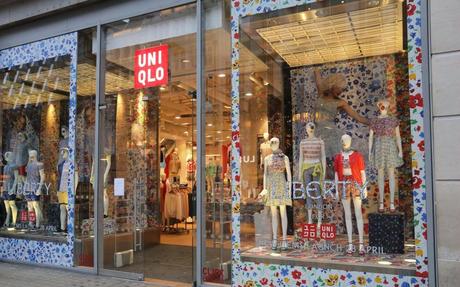
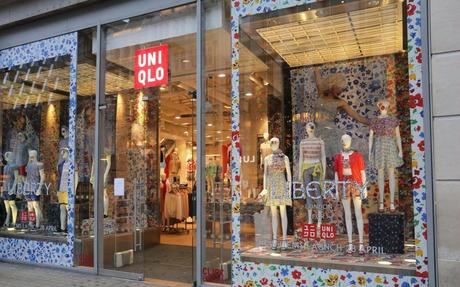
His comments come as he oversees the Japanese retailer's expansion in the UK, with the company aiming to challenge major rivals such as Zara, Next and H&M.
Uniqlo, which launched in Britain 16 years ago, recently announced the opening of a 1,430 sq ft store in Edinburgh, and will soon unveil a new flagship store on Oxford Street in London.
The latter will be the third on Europe's busiest shopping street, which is undergoing a major renewal project after years of decline.
Uniqlo was founded in 1984 by Tadashi Yanai, who opened his first store in Hiroshima after drawing inspiration from British retailer Next.
Over the past 40 years, Tanai has transformed Uniqlo into one of the largest fashion retailers in the world, with more than 2,400 stores in 25 countries - with sales of almost $17 billion (£13 billion) worldwide.
The story continues
It is known for its affordable, casual clothing and its signature 'HeatTech' fabric, which converts moisture into heat.
Its popularity has seen it surpass household names such as Gap and Ralph Lauren, and recently became the third largest fashion retailer in the world, behind H&M and Zara owner Inditex.
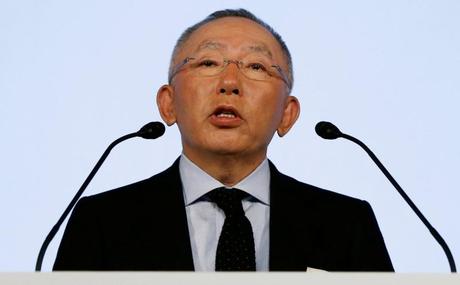
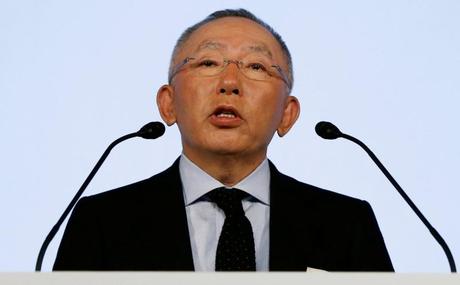
Yanai, now Japan's richest man, has spoken publicly about his desire to oust Uniqlo's remaining rivals.
Crucial to his plan is expanding operations in Europe and Great Britain, with Dudech responsible for the latter.
"There are a lot of competitors fighting for locations," he says. "But I can tell you that our customer base is growing very quickly."
The company doesn't reveal its UK financials, but recent accounts from Uniqlo Europe show sales rose 52% in the past year to €963 million.
As for Dudech, he has worked for Uniqlo his entire professional life, apart from a brief stint as a model for Abercrombie & Fitch.
Born near Milan, he joined Uniqlo in 2012 after abandoning his plans for a career in consultancy.
"I always thought I would eventually end up in finance or consultancy," he says. "That industry has an appeal, but I tried to imagine myself in an office, in a cubicle, instead of on the shop floor. And I thought [retail] is what I want to do."
Since rising through the ranks, from graduate programmer to chief operating officer in the UK, Dudech has embraced the simplicity of Uniqlo.
"We come from Italy and are home to some of the most logo-intensive brands imaginable," he says.
"At Uniqlo there is no logo. I thought that as an Italian I knew a thing or two about fashion, but I had never heard of this company from Japan - I just thought it was very intriguing."
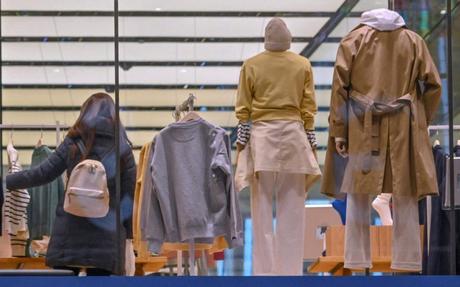
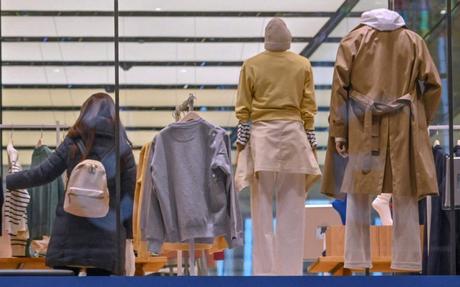
However, while the company is growing in Britain, he admits it still has a long way to go before it reaches the scale of rivals such as Zara and Next, which have 70 and 500 UK stores respectively.
"We are entering the European market, but just repeating what other brands are doing is not enough," says Dudech.
So far the clothes have proven to be a hit with dozens of shoppers in Britain, although most stores are still largely located near affluent London areas such as Wimbledon and Wandsworth.
Given its rising popularity, Uniqlo is coming under increasing scrutiny over the nature of its regular clothing.
In Japan, the garments became so ubiquitous that Uniqlo was nicknamed "Unibore" in the early 2000s, according to New York Magazine, which explored Uniqlo's rise in the United States in an article from 13 years ago headlined "Uniqlones."
However, despite criticism, Dudech says the company wants to go beyond what fast-fashion rivals offer, with Uniqlo now increasingly focusing on repairs.
At its Regent Street store, the company is now offering to repair or make changes to customers' damaged clothing, albeit at a price.
"Of course a small fee must be paid," says Dudech. "But if you go elsewhere, in terms of other small tailoring services, [they charge] a much higher price."
This revived business model has increased demand, although Uniqlo's success has been boosted through social media.
This came about when a £15 banana-shaped Uniqlo bag went viral on TikTok last year after a user posted a video of herself unpacking items.
It struck a chord with TikTok's Gen Z audience, with the hashtag #uniqlobag since racking up 126 million views.
The online phenomenon resulted in a huge increase in sales, making the accessory Uniqlo's best-selling bag of all time, without the retailer spending a cent on marketing.
As well as expanding its UK presence, Dudech is also looking to improve the shopping experience for customers - with the Covent Garden store now boasting a Japanese tea room.
According to him, this ambition is proof of Uniqlo's dedication to brick.
"I don't believe in the death of the shopping street," says Dudech. "I think the post-pandemic period has shown that people were craving connection and socializing.
"I think the shopping street offers a place for that."
